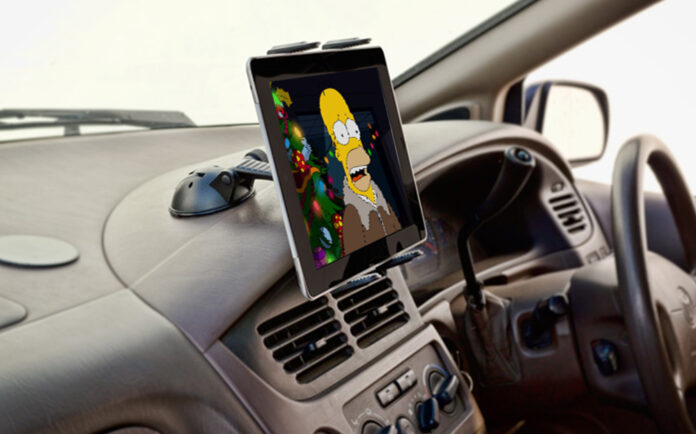Motorists in self-driving cars will be permitted to watch films and television shows at the wheel under planned changes to the Highway Code this summer. However, the use of phones and tablet devices will remain illegal after studies found that they pose a greater risk of distraction.
The government has today (20 April 2022) confirmed planned changes to The Highway Code, responding to a public consultation, continuing to pave the way for safer, more efficient travel.
With self-driving technology rapidly developing across the globe, Britain’s first vehicles approved for self-driving could be ready for use later this year. Vehicles will undergo rigorous testing and only be approved as self-driving when they have met stringent standards.
Transport Minister Trudy Harrison said:
This is a major milestone in our safe introduction of self-driving vehicles, which will revolutionise the way we travel, making our future journeys greener, safer and more reliable.
This exciting technology is developing at pace right here in Great Britain and we’re ensuring we have strong foundations in place for drivers when it takes to our roads.
In doing so, we can help improve travel for all while boosting economic growth across the nation and securing Britain’s place as a global science superpower.
the government announced in April last year that vehicles fitted with automated lane keeping system (ALKS) technology could be the first example of self-driving technology. Existing technology available on the market is ‘assistive’, meaning drivers must currently always remain in control and responsible.
Designed for use on a motorway in slow traffic, ALKS enables a vehicle to drive itself in a single lane, up to 37 mph, while maintaining the ability to return control easily and safely to the driver when required.
Meanwhile, the government expects to have a full regulatory framework in place to support the widespread deployment of the technology by 2025, helping to make the movement of people and goods safer, greener and more efficient.
The technology could improve road safety across Britain by reducing human error, which is a contributory factor in 88% of all recorded road collisions.
Steve Gooding, director of the RAC Foundation, said:
The Highway Code has been updated a number of times in recent years to reflect the rapidly changing transport world we live in and these latest additions will help us all understand what we must and must not do as we move forward to an environment where cars drive themselves.
The final part of the jigsaw is to ensure these amendments are widely communicated to, and understood by, vehicle owners. Vehicle manufacturers and sellers will have a vital role to play in ensuring their customers fully appreciate the capabilities of the cars they buy and the rules that govern them.
Self-driving technology in cars, buses and delivery vehicles could spark the beginning of the end of urban congestion, with traffic lights and vehicles speaking to each other to keep traffic flowing, reducing emissions and improving air quality in our towns and cities.
The technology could also improve access to transport for people with mobility issues and lead to more reliable public transport services, helping to level-up access to transport in historically disconnected and rural areas.







